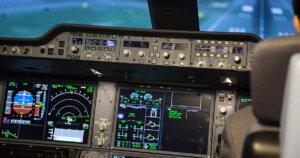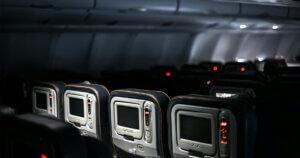
What is an aircraft autopilot?
Aircraft autopilot exists It is a system for guiding the aircraft without the pilot taking the controls We explain how it works and how it should be used
As for any other vehicle, to be a plane pilot you must pass a series of physical and psychotechnical tests, essential to obtain a flight license. Although these tests are somewhat more complex than for other vehicles, they are easy to overcome for anyone with normal physical conditions.
Depending on the type of license you want to obtain, the initial examination will be more or less thorough. For private licenses, this medical certificate will be Class II, while for professionals such as CPL or ATPL licenses (ATPL Frozen) a Class I certificate is needed (Medical certificate class 1).
In Spain, the agency responsible for granting such licenses and establishing the necessary psychological and physical requirements, is the National Department of Civil Aviation which ensures that future pilots are in best physical and mental conditions.
To be an airplane pilot in Spain, it is mandatory to have this medical certificate before registering for any pilot course.
The aim of this examination is to evaluate the applicant’s psycho-physical capacity that ensure he/she has the necessary conditions to act as a pilot in a safe and effective manner, as well as to prevent an acute incapacitation in flight or an early chronic incapacitation. Therefore, not only diseases or injuries are taken into account, but also the consequences derived from them.
However, it is important to discern between a definitive and a temporary unfit. For example, a heart injury, epileptic seizures, or color blindness cause a definitive denial while a high cholesterol, anemia, or any other reversible circumstance, make a reviewable temporary denial.
Special attention is also paid to the applicant’s psychological profile. A depressive personality, prone to panic, unstable or paranoid will determine an irreversible unfit.
So, the following aspects are examined:
This test is performed every five years until the age of 30. From 30 to 40 will be every two years, to become annual once 41. It analyzes the heart rate to detect any abnormalities that, due to pressure changes that occur in an airplane, may incapacitate the applicant. People with a heart or lung transplant, by-pass, vascular alterations or aneurysm would not be considered apt for this medical certification, neither Class I (professional pilots) nor Class II (private pilot).
To check lungs do not have any abnormal condition. Since flight activity is carried out in the upper atmosphere, and although aircraft cockpits artificially maintain an atmospheric pressure higher than that outside and similar to that of lower altitudes, it is important pilots do not present abnormalities in their respiratory system. Some conditions, such as asthma, require more specific tests to assess the extent of such failure in each specific case.
Nose, ears, throat, and mouth will be checked and an audiometry will be done to verify that hearing sense is correct for flying a plane safely. This test will be repeated every five years for those under 40 years, and every two years after this age.
A complete ophthalmologic test shall be performed at the initial examination to determine visual acuity. This test will include the Ishihara test to make sure there is no color alteration. Abnormalities such as color blindness or severe nearsightedness can leave us out. Still, in the case of color blindness, you can apply for private licenses, being able to fly with restrictions (only at day light and without instruments).
In the case of presenting some visual alteration of refractory type (myopia, astigmatism, presbyopia, etc…) that makes the use of glasses necessary, each particular case will be studied. A pilot can wear glasses. Current regulations admit a certain degree of visual alteration. Thus, in the initial evaluation, the accepted values for the amount of dioptres vary according to the refractive error. For example, a refractive error of +5 to -6 dioptres is accepted; a refractive error + astigmatism shall not exceed 2.0 dioptres or, in the case of anisometromy, the value shall be less than 2.0 dioptres. In any case, the medical certificate will indicate that we must fly with glasses.
Gastrointestinal problems, or related diseases, are grounds for refusal of the medical certificate. This certificate must prove the person does not suffer from any disabling hernia, as well as any chronic intestinal disease.
In this test your static posture and your balance will be examined, with your eyes open and closed. Although it is not required to have a specific physique, those pilots intended for the Air Forces must comply with minimum requirements of arms and legs height and length.. This is because the cabin dimensions of a combat plane are quite small and, in an emergency, the pilot’s body must not obstruct the aircraft’s ejection system as there is a risk of serious injuries to the limbs or head.

Blood test – check for absence of infections or diseases.
In case of pregnancy, you may fly only until the 26th week of gestation (6-7 months), always under the supervision of medical authorities who approve to continue with the activity.
To discard any type of kidney condition and to check there are no traces of narcotic substances.

Special attention is paid to the applicant’s psychological profile who will have to undergo different tests to prove he/she is psychologically able to operate a plane safely.
So, the psychotechnical tests for commercial pilot will be the following:
On the other hand, psychic pathology diseases, acute or chronic, result in a “not fit” for flight activity. People with a history of depression, bipolarity, personality disorders or a history of self-harm will be declared unfit. Thus, the specialist should, through tests such as the Hamilton Anxiety Scale or the Goldberg Bipolar Disorder Questionnaire, certify that there is no neurotic disorder, of personality, mood or behaviour as well as disorders related to the consumption of alcohol or narcotic substances resulting in a “no apt”.
Our pilot school works for the professional excellence of each student.
We are accompanied by instructors with more than 20 years of experience and state-of-the-art aircraft.
We offer:
Helicopter Pilot Courses
Aeroplane Pilot Courses
Drone Pilot Courses
Flying Experiences

Aircraft autopilot exists It is a system for guiding the aircraft without the pilot taking the controls We explain how it works and how it should be used

Code Blue in Flight Blog What is a Code Blue in aviation? Code Blue is the term used to refer to time-dependent health incidents, that is, those in which every
You will be up to date with the news at World Aviation Group.